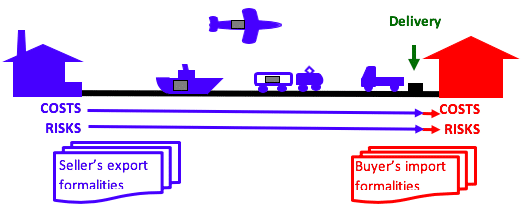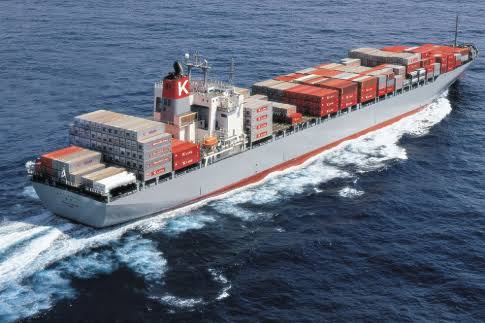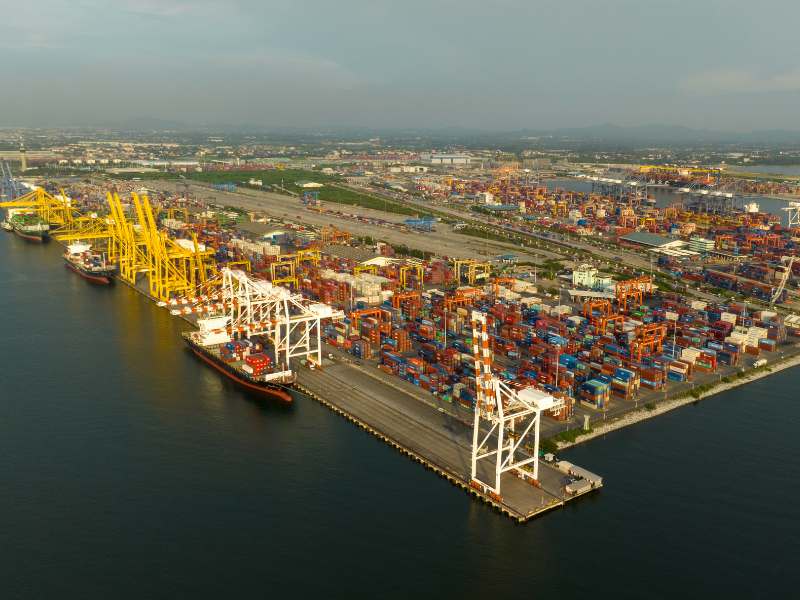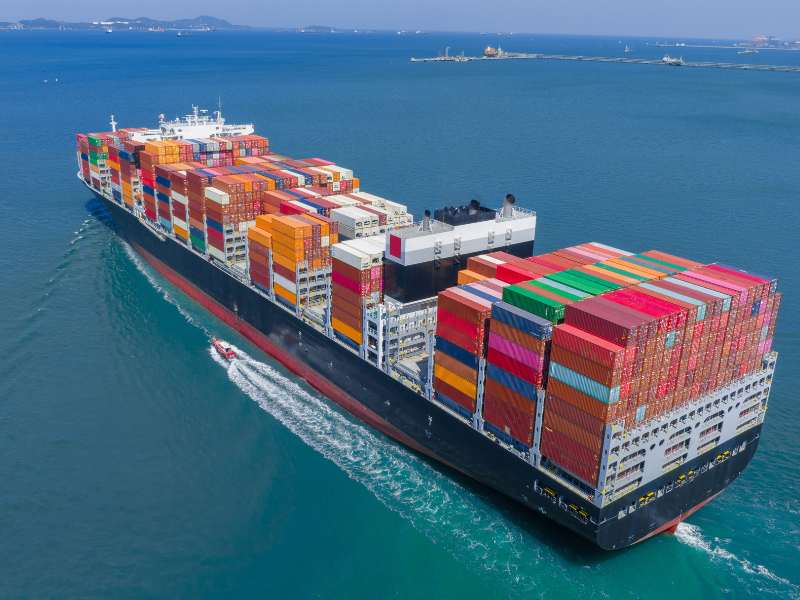The full name of DPU,Delivered at Place Unloaded, which means that the seller delivers the goods to the buyer after unloading at the designated destination or destination port distribution station, and the seller undertakes to deliver the goods to the seller at the designated destination or destination port distribution station. All risks and costs except import charges.
Buyer and seller obligations for DPU
Seller’s obligations
(1) The seller bears all the risks and costs of transporting the goods to the destination by means of transport, and unloading the goods to the designated terminal at the destination before delivering them to the buyer, including all the customs clearance procedures and loading of the goods for export. costs and risks.
(2) Provide goods that meet the contract requirements.
(3) Go through export procedures.
(4) Carry out cargo transportation.
(5) Hand over the relevant shipping documents or digital information.

Buyer’s obligations
(1) The seller takes delivery of the goods in accordance with the contract and pays the price according to the contract; bears all risks of damage and loss of the goods from the time of receipt, and pays all expenses related to the goods from the time of delivery .
(2) If customs clearance is required, the buyer must go through customs clearance procedures at his own risk and expense, and pay import duties, taxes and other import fees.
(3) The buyer is responsible for all unloading costs required to collect the goods from the arriving means of transport.
(4) At the seller’s request and on the premise of the seller’s risk and expense, provide the seller with the documents and information required for the transportation and export of the goods or pass through any country in a timely manner, and provide assistance.
(5) Pay the cost of pre-shipment inspection.
Points to note in actual business for DAP
A. The seller needs to transport the goods conforming to the contract to the designated terminal within the time limit specified in the contract and hand over the goods to the buyer or its agent after unloading.
B. Before the goods are handed over to the buyer or its agent, all export customs clearance, transportation and insurance, destination port or destination unloading procedures shall be handled by the seller, and the resulting costs and risks shall also be borne by the seller.
C. After the buyer or his agent receives the goods delivered by the seller at the terminal, he needs to go through import customs clearance, transshipment and other procedures by himself, and bear the related costs and risks arising therefrom.
The difference between DDU and DAP
Different premise
DDU: The premise of DDU is that the seller will ship the goods directly to the designated place in the importing country.
DAP: The premise of DAP is that the seller has used the means of transportation to deliver the goods to the destination specified by the buyer.
Unloading is different
DDU: The seller of DDU delivers the goods at the designated destination, and the seller is responsible for unloading the goods from the arriving means of transport.
DAP: The seller of DAP delivers at the named destination, but the seller is not responsible for unloading the goods from the arriving means of transport.
Different risk
DDU: The DDU seller must, at its own risk and expense, obtain any import license or other official permit or other document, and carry out all customs formalities required for the import of the goods when customs formalities are required.
DAP: The DAP seller bears all risks and expenses before delivery on the means of transport at the designated destination.
For all your needs for shipping from China to USA, please contact us today!





